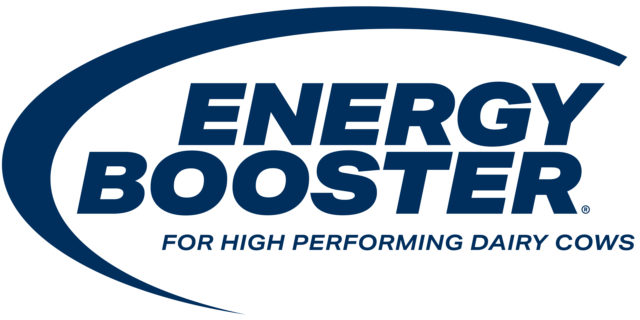- 2022 DMC sign-up deadline extended until March 25
- Cottonseed supply larger
- Dairy margins start 2022 stronger
- USDA, DOJ launch ‘anticompetitive practices’ online reporting tool
- USDA earmarks $1 billion for ‘climate smart’ pilot projects
2022 DMC sign-up deadline extended until March 25
The USDA Farm Service Agency (FSA) has extended the sign-up deadlines for 2022 Dairy Margin Coverage (DMC) and Supplemental Dairy Margin Coverage (SDMC) programs again, this time until March 25.
Currently, enrollment for the 2022 DMC program is estimated at just 48% of the 2021 program year enrollment, with about 8,969 operations enrolled.
Producers who enrolled in DMC for 2021 received margin payments each month, January through November, for a total of $1.2 billion, with an average payment of $60,275 per operation.
Enrollments for both 2022 DMC and SDMC programs are occurring simultaneously, but small and midsized producers eligible to make milk production history adjustments under SDMC must do so prior to enrolling for the 2022 DMC program.
Supplemental DMC coverage is applicable to calendar years 2021, 2022 and 2023. Participating dairy operations with supplemental production may receive retroactive supplemental payments for 2021 in addition to payments based on their established production history.
Applications for Supplemental DMC payments will require a revision to a producer’s 2021 DMC contract and must occur before DMC enrollment for 2022. The program limits Supplemental DMC payment to cover 75% of the difference between an eligible dairy operation’s actual 2019 milk marketings and its previous DMC milk marketing history. Eligible producers must provide FSA officials with their 2019 milk marketing statements, and DMC premiums are required on enrolled supplemental production at the standard premium rate.
For DMC enrollment, producers must certify with FSA that the operation is commercially marketing milk, sign all required forms and pay the $100 administrative fee. The fee is waived for farmers who are considered limited resource, beginning, socially disadvantaged or a military veteran.
Producers are urged to call their local USDA Farm Service Agency office to schedule an appointment.
Cottonseed supply larger
Dairy producers can expect to see an increase in the whole cottonseed supply at more stable prices this year, based on USDA harvest estimates cited by Cotton Incorporated.
The USDA’s December 2021 Cotton and Wool Outlook report estimated 2021 cotton production at 18.3 million bales, a 25% increase from the 2020 crop year. As a result, the whole cottonseed supply is estimated to be about 1 million tons more than the previous year. Most of the increase is due to more favorable growing conditions in Texas; Mid-South and Southeast production remained steady. It was also a quieter year for hurricanes.
Dairy margins start 2022 stronger
Dairy margins strengthened sharply to start the year as a continued surge in milk prices combined with a mild correction in the feed markets to boost projected profitability, according to Commodity & Ingredient Hedging LLC.
The milk market caught fire from a perfect storm of declining global production at the same time as demand for dairy products soared. Feed prices corrected as much-needed rain was forecast for parched areas of Argentina and southern Brazil, while the USDA’s January WASDE report was considered neutral for corn and soybeans.
Upcoming reports impacting milk checks include the USDA’s World Ag Supply and Demand Estimates report on Feb. 9; Federal Milk Marketing Order (FMMO) uniform price and producer price differentials for January milk marketings, released Feb. 11-14; USDA’s latest Cold Storage and Milk Production reports, on Feb. 22-23, respectively; and the January Dairy Margin Coverage (DMC) program margin and indemnity payments, Feb. 28.
USDA, DOJ launch ‘anticompetitive practices’ online reporting tool
The USDA and U.S. Department of Justice (DOJ) have launched an online tool to allow farmers and ranchers to anonymously report potentially unfair and anticompetitive practices in the livestock and poultry sectors.
As part of the enforcement partnership, officials with DOJ and USDA’s Packers and Stockyards Division agreed to collaborate on complaints received through the portal. If a complaint raises sufficient concern under the Packers and Stockyards Act or antitrust laws, it will be selected for further investigation by the appropriate agency.
Users can submit information under their names or may submit anonymous complaints. If a complainant provides their personal information, DOJ or USDA staff will only contact them if additional information is needed. To submit an anonymous complaint, users can provide information about the potential violation without including their names or contact information.
Producers who choose not to use the online portal also can submit complaints or tips about potentially anticompetitive practices via email or by calling (833) 342-5773, or mailing Stop 3601, 1400 Independence Ave. SW, Washington, D.C., 20250-3601.
USDA earmarks $1 billion for ‘climate smart’ pilot projects
A new USDA program will provide $1 billion to fund pilot projects that create market opportunities for U.S. agricultural and forestry products that use climate-smart practices and include innovative, cost-effective ways to measure and verify greenhouse gas (GHG) benefits.
Projects should provide incentives to producers and landowners to: implement climate-smart production practices, activities and systems on working lands; measure/quantify, monitor and verify the carbon and GHG benefits associated with those practices; and develop markets and promote the resulting climate-smart commodities.
Funding is available to local and state governments, small businesses, for-profit, nonprofit and Native American organizations and private and public educational institutions. The primary applicant must be an entity, not an individual.
The USDA Commodity Credit Corporation funding for fiscal year 2022 Partnerships for Climate-Smart Commodities grants will be provided in two funding pools. Application deadline for the first funding pool (proposals from $5 million to $100 million) is April 8. The deadline for the second funding pool (proposals from $250,000 to $4,999,999) is May 27.
Additional information, including resources and application details, is available here. ![]()
-
Dave Natzke
- Editor
- Progressive Dairy
- Email Dave Natzke






